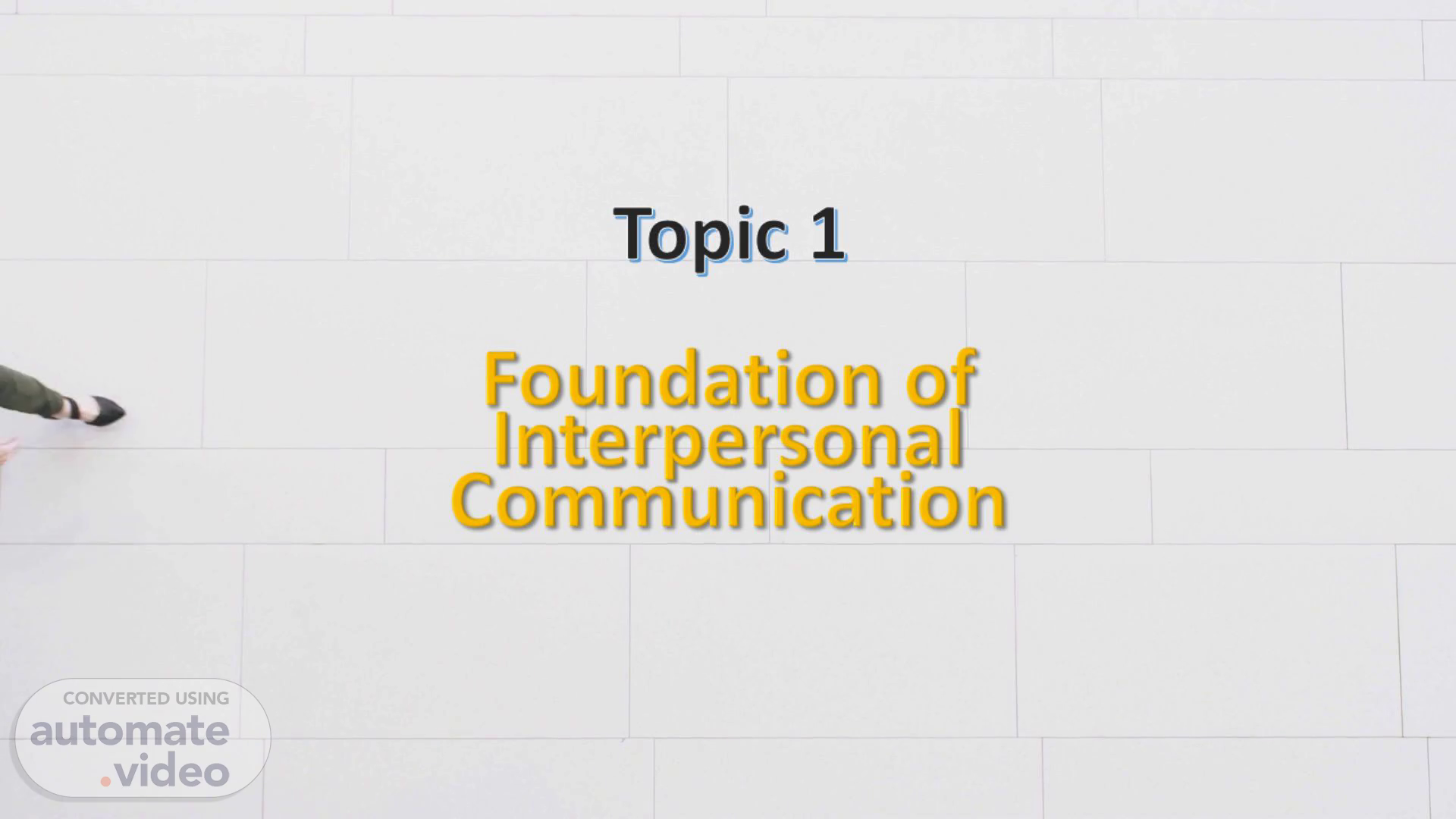Scene 1 (0s)
Topic 1. Foundation of Interpersonal Communication.
Scene 2 (16s)
[Audio] Welcome to part 3 of the first topic. In this part, we will continue lecture on elements of interpersonal communication about context, effects, and ethics..
Scene 3 (33s)
[Audio] Context. Context.
Scene 4 (48s)
[Audio] Context refers to the environment that influences the form and content of messages. Context can be unobvious in certain situation, seems naturally such as background music, or at some other time, it can dominate the communication like the environment during the funeral. There are four dimension of context namely physical, temporal, social-psychological and cultural dimension..
Scene 5 (1m 13s)
[Audio] Physical dimension refers to tangible or concrete environment where the communication take place, for example in the classroom. The size of the room, numbers of students and the temperature in the classroom are parts of physical dimension as well. As for online communication, context may take place in terms of restriction laid in the social media used, for example the limitation or restriction of character or messages imposed. While in print media, the stories positioning like the page arrangement is part of context. Temporal dimension, has to do with time of the day and moment in history, and also particular messages fits into certain events. For example, telling a joke at funeral does not fit the event or situation. Social psychological dimension includes status relationships, roles and games that people play like norms of the society, formality, friendliness. While in online communication, social psychological dimension may be influence by the types and purpose of media used, such as facebook and Instagram are used mainly for informal interaction while linkedIn on the other hand are more for serious interaction. Cultural dimension includes cultural beliefs and customs of the people communicating. Communicating with people from different culture requires you to follow different rules of communication that will result in miscommunication if you fail to do so..
Scene 6 (2m 40s)
[Audio] Effects. Effects.
Scene 7 (2m 55s)
[Audio] Interpersonal communication always has some effects on one or more persons involved in communication act because for any interaction, there must be some consequences. Generally, there are three effects identifies, that are cognitive, affective and behavioral effects. Cognitive effect is largely intellectual, involves changes in your thinking, while affective effects are referring to changes in attitudes, values, beliefs, and emotions. Behavioral effects are changes in behaviours. Take an example in which you might experience all of these effects. You are volunteering yourself in an exchange student program in another country which requires you to communicate with the local students. You might read and gather information about the place and its people, so the information brings cognitive effects on you out of the information gathers. Once you start to mixed around with other local students, you start to learn more about them and this influence you to change your attitudes towards them, which refers to affective effect, that comes out of your interaction with them. After some time, you learn local tradition for example, or start to speak their language, which is called as behavioral effects. All these three affects are interacted with each other..
Scene 8 (4m 13s)
[Audio] Ethics. Ethics.
Scene 9 (4m 28s)
[Audio] Ethics refers to the study of good and bad, of right and wrong, of moral or immoral which concerned with actions, with behaviours ; distinguishing between behaviour that are moral and those that are immoral. What is ethical or unethical can be influenced by objective or subjective view. Objective view set an ethical act based on standard apply to all people. For example, it is unethical to telling lie as honesty is universal value for moral principle. While subjective view set what is ethical or unethical based on specific culture's values and belief. For example, about the dress code, what is consider appropriate or inappropriate is greatly influence by culture. In some cultures, wearing certain clothing is seen as respectful, while in others it might be considered inappropriate..
Scene 10 (5m 22s)
[Audio] That' s the end lecture for this part. Thank you..
